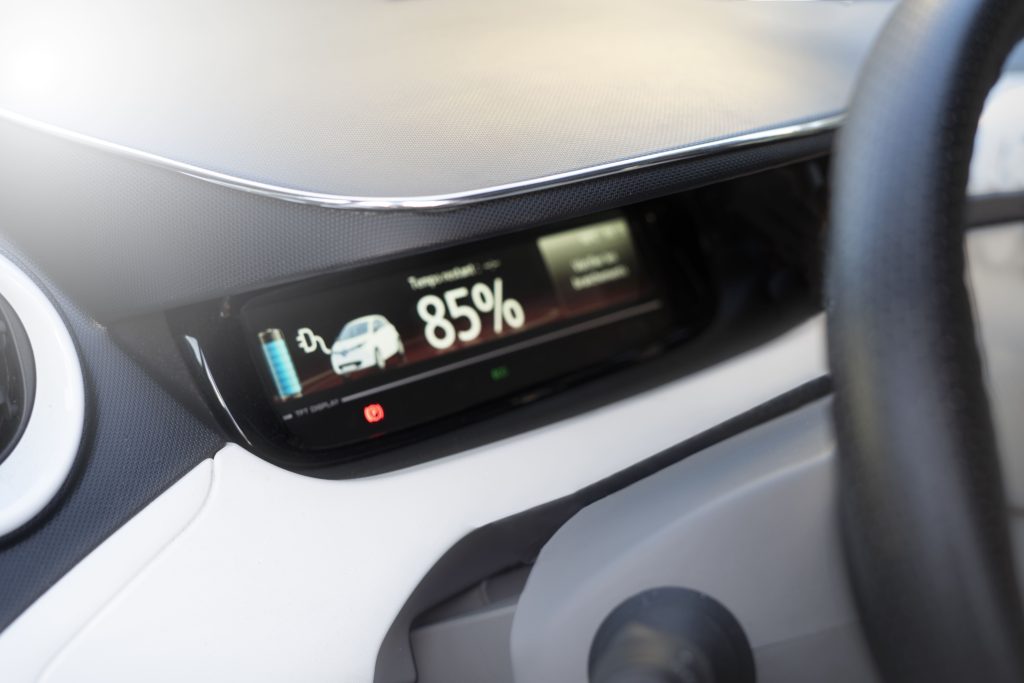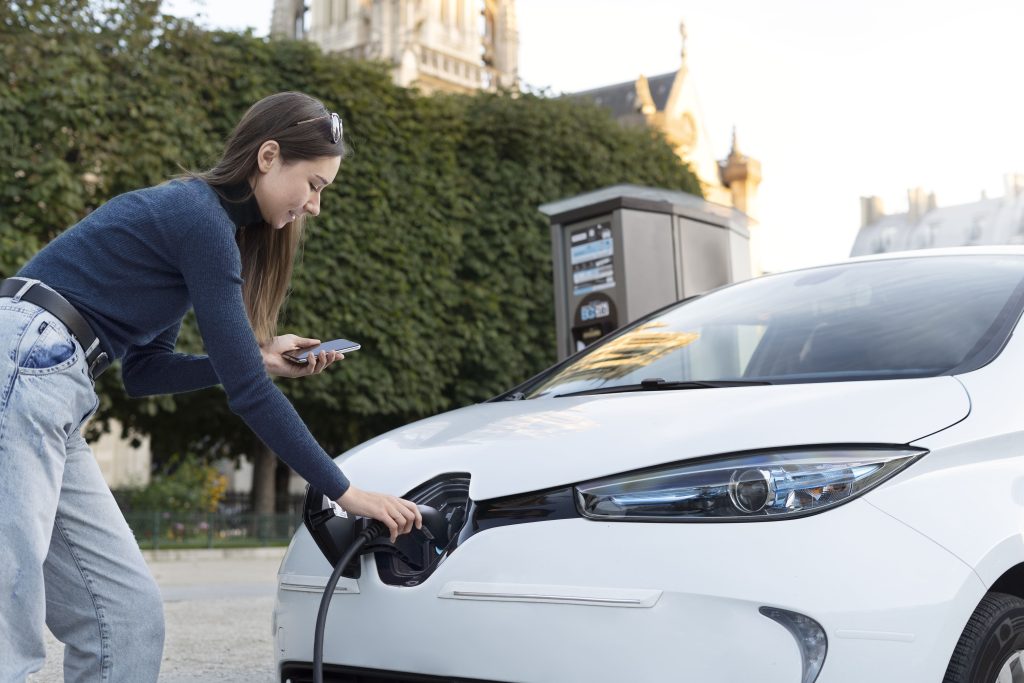
Products
Fast, Reliable, Everywhere

Solutions
Efficient, Innovative EV Charging Solutions.
News
We are committed to the innovation and application of EV charging.
I remember the first time I pulled up to a charging station and faced the dilemma of choosing between AC vs DC EV charging. It felt like a confusing choice with no clear answer. In this article, I’ll share what I’ve learned about AC and DC chargers and help you decide which one is right for you.

When exploring electric vehicle (EV) charging options, the difference between AC and DC chargers is crucial, especially concerning charging speeds. Based on my experience and research, here's a detailed look at how each type of charger performs.
AC chargers are typically found in home and workplace settings. They operate by converting the alternating current (AC) from your home’s electricity supply into the direct current (DC) that your EV's battery requires. This conversion happens within the car’s onboard charger, which is a significant factor in the overall charging time.
On average, AC chargers deliver power at rates ranging from 3.7 kW to 22 kW. For example, a standard Level 1 AC charger (120 volts) provides around 1.4 kW, which might take up to 8-12 hours to fully charge a battery with a capacity of 60 kWh. A Level 2 AC charger (240 volts), more common in residential settings, offers faster charging at rates of 3.7 kW to 22 kW. This could reduce the charging time to around 4-6 hours for the same battery capacity. According to the U.S. Department of Energy, Level 2 chargers are suitable for overnight charging or extended parking periods, making them ideal for daily use.
DC chargers, often found at public charging stations along highways and in commercial areas, are designed for rapid charging. Unlike AC chargers, DC chargers send direct current straight to the EV’s battery, bypassing the car’s onboard charger. This direct delivery of power speeds up the charging process significantly.
DC fast chargers operate at power levels ranging from 50 kW to 350 kW. For instance, a typical 50 kW DC charger can charge a 60 kWh battery from 20% to 80% in approximately 30 minutes. More advanced ultra-fast chargers, like those at 150 kW or 350 kW, can reduce this time even further, allowing an 80% charge in around 15-30 minutes. Data from the International Energy Agency (IEA) shows that DC fast charging is particularly beneficial for long-distance travel, where quick turnaround times are essential.
To illustrate the difference, let’s consider a real-world scenario. If you’re using a Level 2 AC charger at home, you might spend around 4-6 hours charging from 20% to 80%. In contrast, a 150 kW DC fast charger can achieve the same level of charge in roughly 30 minutes. This speed advantage of DC chargers is a key reason they are preferred for public charging stations and long-distance travel.
In conclusion, the choice between AC vs DC chargers largely depends on your specific needs. If you mainly charge overnight or during extended parking periods, AC chargers are generally sufficient and cost-effective. For quick top-ups and long journeys, DC fast chargers offer significant time savings and are a valuable option.
Understanding these differences helps in making informed decisions about your charging strategy, whether at home or on the go.

When I was looking into installing a charger for my electric vehicle, the cost was a major factor. There’s a significant difference between installing and using AC and DC chargers, and understanding these differences can help you make a more informed decision.
Installing an AC charger at home is usually more straightforward and less expensive. For a basic setup, like a Level 2 AC charger, the installation costs can range from $500 to $2,000. This includes the price of the charger itself and the cost of having an electrician install it. I found that getting a quote from a few electricians helped me find the best deal.
Once installed, using an AC charger is quite cost-effective. The electricity needed to charge your EV is generally the same as what you pay for your home’s power. This means that the ongoing costs are simply a matter of how much energy you use, which is relatively low compared to other expenses. For me, this meant that my daily charging costs were minimal, and I could easily factor it into my monthly electricity bill.
On the other hand, DC chargers are more expensive to install and maintain. The installation can cost between $10,000 and $50,000, depending on the type of charger and the complexity of the installation site. This high cost is due to the advanced technology and higher power requirements of DC chargers. I learned this firsthand when researching options for fast-charging stations. It’s often more cost-effective for businesses or high-traffic areas to invest in DC chargers due to the speed they offer.
Using a DC charger also comes with additional costs. These chargers are typically found at public charging stations, and the price per session can be higher than charging at home. The cost varies depending on the provider, but it can range from $0.20 to $0.80 per minute. For someone like me who does long trips frequently, using DC chargers might be more expensive, but the time saved can make it worthwhile.
If you're mainly charging at home or work, an AC charger is usually more budget-friendly and practical. It's easier on the wallet both in terms of installation and daily usage. DC chargers, while faster, are better suited for locations where quick turnaround is crucial, like along highways or in commercial areas.
Understanding these cost differences helped me make a choice that fit both your budget and your driving needs. If you’re considering which type of charger to install or use, weigh these factors based on how and where you plan to charge your EV.

Selecting the right type of EV charger depends on how and where you plan to charge your vehicle. Based on industry data and my own observations, here’s a detailed look at the best scenarios for using AC and DC chargers.
AC chargers are commonly used in residential and workplace settings. They are well-suited for overnight or long-duration charging. For example, a Level 2 AC charger typically delivers power at 7.7 kW to 22 kW. According to the U.S. Department of Energy, a Level 2 charger can add about 20 to 25 miles of range per hour of charging. This means if you plug in overnight, you could easily gain 100 miles of range by morning.
At home, the installation cost for a Level 2 AC charger ranges between $500 and $2,000, depending on the complexity of the installation. In many cases, this investment pays off through lower electricity costs compared to public charging stations. The average cost of residential electricity in the U.S. is about $0.13 per kWh, which translates to a relatively low cost for each mile of range added at home.
For workplace settings, AC chargers are often installed to allow employees to charge while at work. According to a study by the International Council on Clean Transportation, workplace charging can increase the likelihood of employees using electric vehicles, making it a valuable addition to employee benefits.
DC chargers are designed for rapid charging and are typically found at public charging stations, especially along highways and in high-traffic areas. They provide direct current (DC) directly to the vehicle’s battery, bypassing the car’s onboard charger. DC fast chargers come in various power levels, ranging from 50 kW to 350 kW.
For example, a 50 kW DC fast charger can add about 100 miles of range in 30 minutes. More advanced 150 kW to 350 kW chargers can significantly reduce this time, adding up to 200 miles of range in approximately 20 minutes. This rapid charging capability is essential for long-distance travel. A report by the U.S. Department of Energy highlights that fast chargers are crucial for reducing charging time during road trips and for urban charging networks.
The installation cost of DC chargers is higher, often between $10,000 and $50,000. This cost is due to the advanced technology and infrastructure required. According to a study by the National Renewable Energy Laboratory, public DC fast charging stations have high usage rates, which can make them economically viable despite the high installation costs. The pricing for DC fast charging typically ranges from $0.20 to $0.80 per minute, which reflects the premium for quick charging services.
For daily commuting and home use, AC chargers are generally more cost-effective and sufficient. They offer a reliable way to charge overnight at a lower cost. For quick, high-mileage needs, such as long road trips or busy public areas, DC chargers provide the necessary speed and convenience. Understanding these factors helps in making the right choice for your charging needs based on usage patterns and driving habits.
Choosing the right EV charger can make a big difference in how convenient and cost-effective your charging experience is. Based on what I’ve learned and experienced, here’s a simple guide to help you decide between AC and DC chargers.
1. Consider Your Daily Routine
Think about how often and where you’ll be charging your EV. If you mostly drive short distances and have access to charging at home or work, an AC charger is usually enough. I use a Level 2 AC charger at home, which works perfectly for my daily needs. I plug in at night, and by morning, my car is fully charged and ready to go. For finding nearby charging stations, tools like the PlugShare EV Charging Station Map can be incredibly helpful.
2. Assess Charging Speed Needs
If you often find yourself on long trips or need to charge quickly during the day, a DC charger might be a better fit. DC chargers are designed to provide a fast charge, which can be a real time-saver on the road. I found that using a DC fast charger during a road trip made a huge difference, letting me get back on the road quickly.
3. Evaluate Installation Costs
AC chargers are generally more affordable to install. Installation costs for a Level 2 AC charger can range from $500 to $2,000. This is a one-time expense, and it’s a good option if you’re setting up charging at home or work. On the other hand, DC chargers are much more expensive, with installation costs ranging from $10,000 to $50,000. These are typically installed in public charging stations rather than private homes.
4. Look at Usage Patterns
If you need a charger for frequent, high-speed charging, especially in a commercial setting, DC chargers are the way to go. They are ideal for locations where people need to charge quickly, such as at highway rest stops or high-traffic urban areas. For regular, everyday use, an AC charger will likely meet your needs without the added cost.
5. Think About Convenience
Consider where you will most often charge your vehicle. For home or office use, an AC charger provides convenience and lower costs. For public or on-the-go charging, DC chargers offer the speed and efficiency needed to keep you moving.
Choosing the right charger really depends on your specific needs and habits. If you drive locally and have regular access to a charging spot, an AC charger will do the job. If you need fast, efficient charging for long trips or high-traffic areas, a DC charger is worth considering. I’ve found that understanding these factors helps me make the best choice for my own charging needs and ensures a smoother EV experience.
Choosing the right EV charger is key to a smooth and efficient driving experience. Whether you opt for the cost-effective convenience of an AC charger or the rapid performance of a DC charger, understanding your needs and habits will guide your decision. Dive into your charging options and make the choice that fits your lifestyle best. Ready to upgrade your charging setup? Explore your options today and find the perfect match for your electric vehicle!
